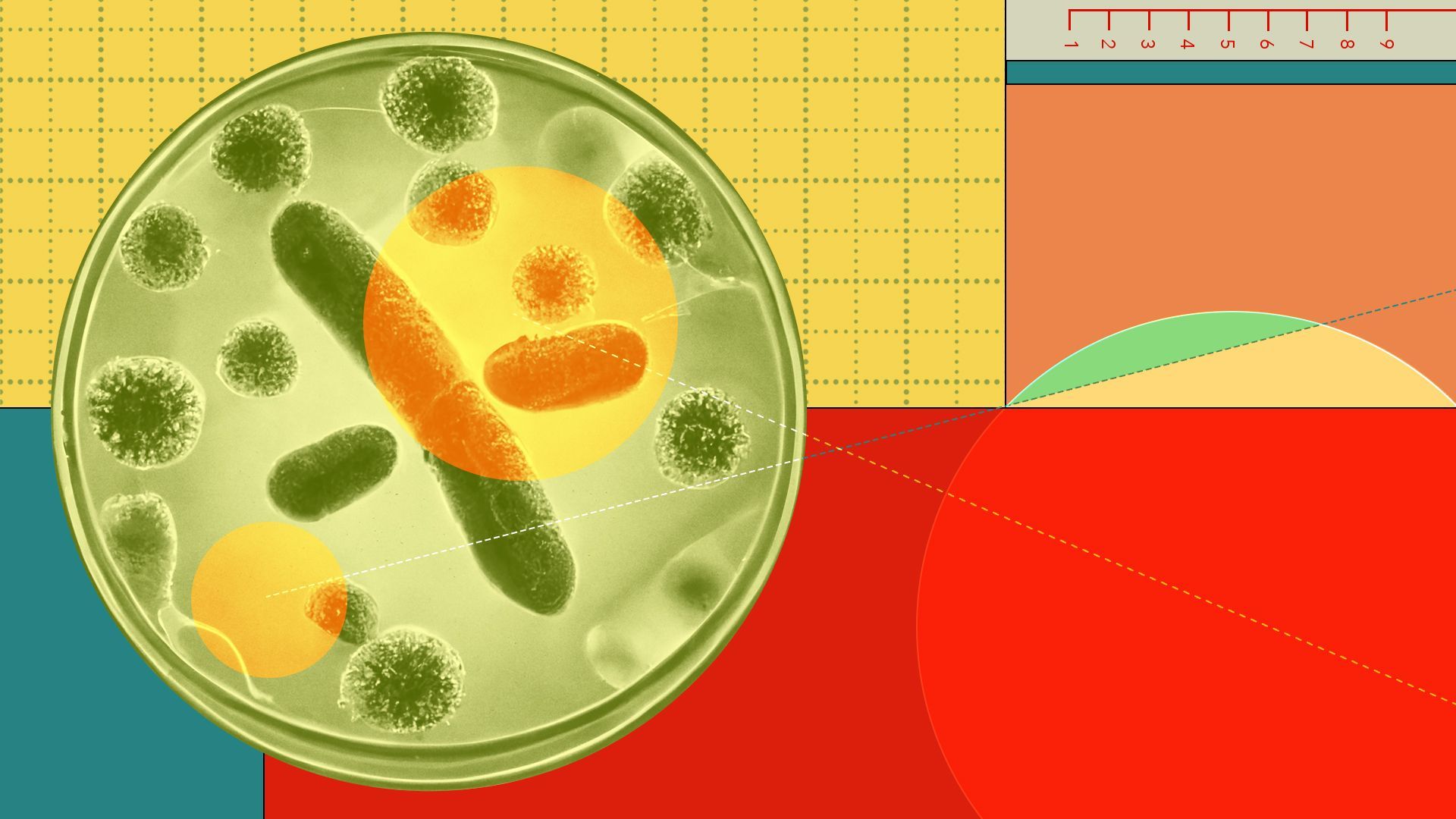Scientists call for ban on creating "mirror life"
 |
| Illustration: Sarah Grillo/Axios |
Scientists are sounding new alarms about man-made organisms whose constituent molecules are mirror images of what's found in nature and could pose unprecedented risks to humans, animals and the environment.
Why it matters: While the ability to create "mirror life" is probably at least a decade away, researchers already have synthesized mirror-image biological systems that could be used in the development of new drugs, axios.com.
The concern is that mirror bacteria could evade many natural immune defenses of humans, animals and plants, infecting host organisms and replicating unchecked, an international group of 38 prominent researchers wrote in Science last week.
What they are saying: "Driven by curiosity and plausible applications, some researchers had begun work toward creating lifeforms composed entirely of mirror-image biological molecules," they wrote.
"Such mirror organisms would constitute a radical departure from known life, and their creation warrants careful consideration."
Zoom in: The scientists called for a ban on creating mirror bacteria "unless compelling evidence emerges that mirror life would not pose extraordinary dangers."
They urged funding organizations to make clear they will not support such work, and to ensure anyone who attempts to create mirror life will be "hindered by multiple scientifically challenging, expensive and time-consuming steps."
Context: The researchers said they were initially skeptical that mirror bacteria could pose major risks. But they've since concluded that technological progress will likely make this possible.
All known life has uniform handedness, or chirality. DNA and RNA are made from "right-handed" nucleotides, and proteins are made from "left-handed" amino acids.
Mirror-image biological molecules would essentially be reversed, in a radical departure from nature. The scientists write that this characteristic would allow them to evade natural defenses and potentially act as invasive species across many ecosystems.
"Much like an invasive species with few natural predators, we are concerned that mirror bacteria could rapidly proliferate, evolving and diversifying as they spread," they wrote. "Persistent and potentially global presence of mirror bacteria in the environment could repeatedly expose human, animal, and plant populations to the risk of lethal infection."
The researchers included experts in synthetic biology; human, animal and plant physiology; biosecurity and global health.






Коментарі
Дописати коментар